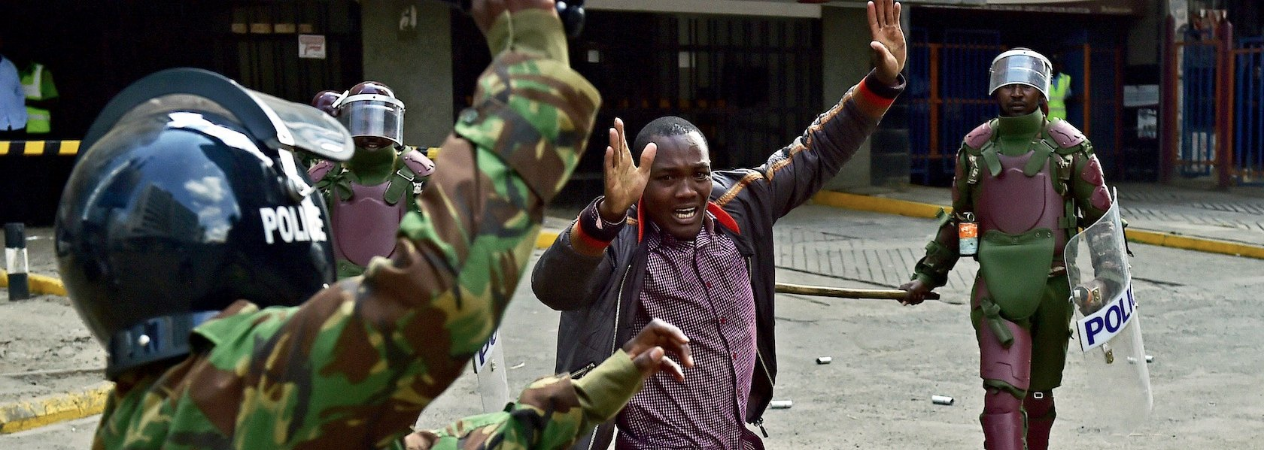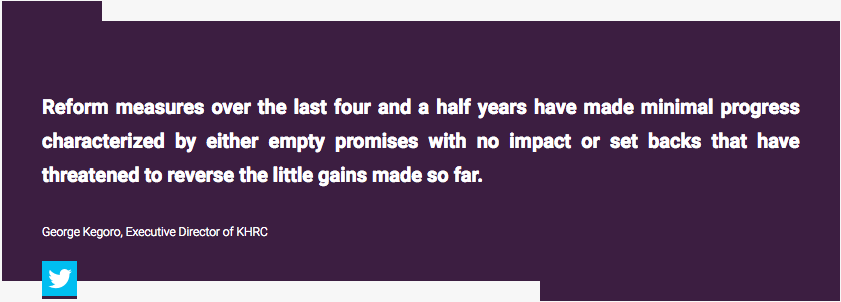On the one hand, strides have been made in implementing reforms within Kenya’s security and justice sectors. These include the successful creation of an Independent Policing Oversight Authority (IPOA) which has provided the much-needed civilian oversight in this area. The government has also invested in recruiting more police officers, surpassing the UN ratio of 1 officer for 450 inhabitants. Furthermore, the Judiciary has been improved with the appointment of more than 200 judges and magistrates. This has alleviated the backlog of cases by 311,000 out of a million in 3 years, and investment in a Judicial Transformation framework has helped contribute to the independence of the Judiciary branch.
Nonetheless, there is need for holistic reform to address some of the persistent human rights violations in Kenya. In particular, the increase in reports of extra-judicial executions continues to violate the right to life and security of the person. The emerging trends and evident failure to address this, is a serious cause for concern. Also, whilst terrorism is admittedly a major security concern in the country, the violations committed by state security agencies during counter-terror operations renege on the promises of holistic security sector reforms. In addition to these, is the worrying trend under the Jubilee administration of violating the freedom of assembly through the use of unlawful, extreme and often lethal methods of crowd control in policing protests.
As far as the justice sector goes, victims of gross human rights violations continue to cry for justice and accountability. For close to ten years the victims of PEV have not received comprehensive and responsive remedies for the harm they suffered and continue to suffer as a result of the 2007-2008 episodes. Finally, the government has failed to implement the TJRC Report, despite the report having been submitted to President Kenyatta over 3 years ago. These issues continue to impede the reforms process in Kenya.
The main causes for these shortcomings is the political interference by the Executive or Parliament in order to maintain control over the operations of security agencies and over the outcome of judicial proceedings. In some cases, the government has simply refused to accept court rulings.




